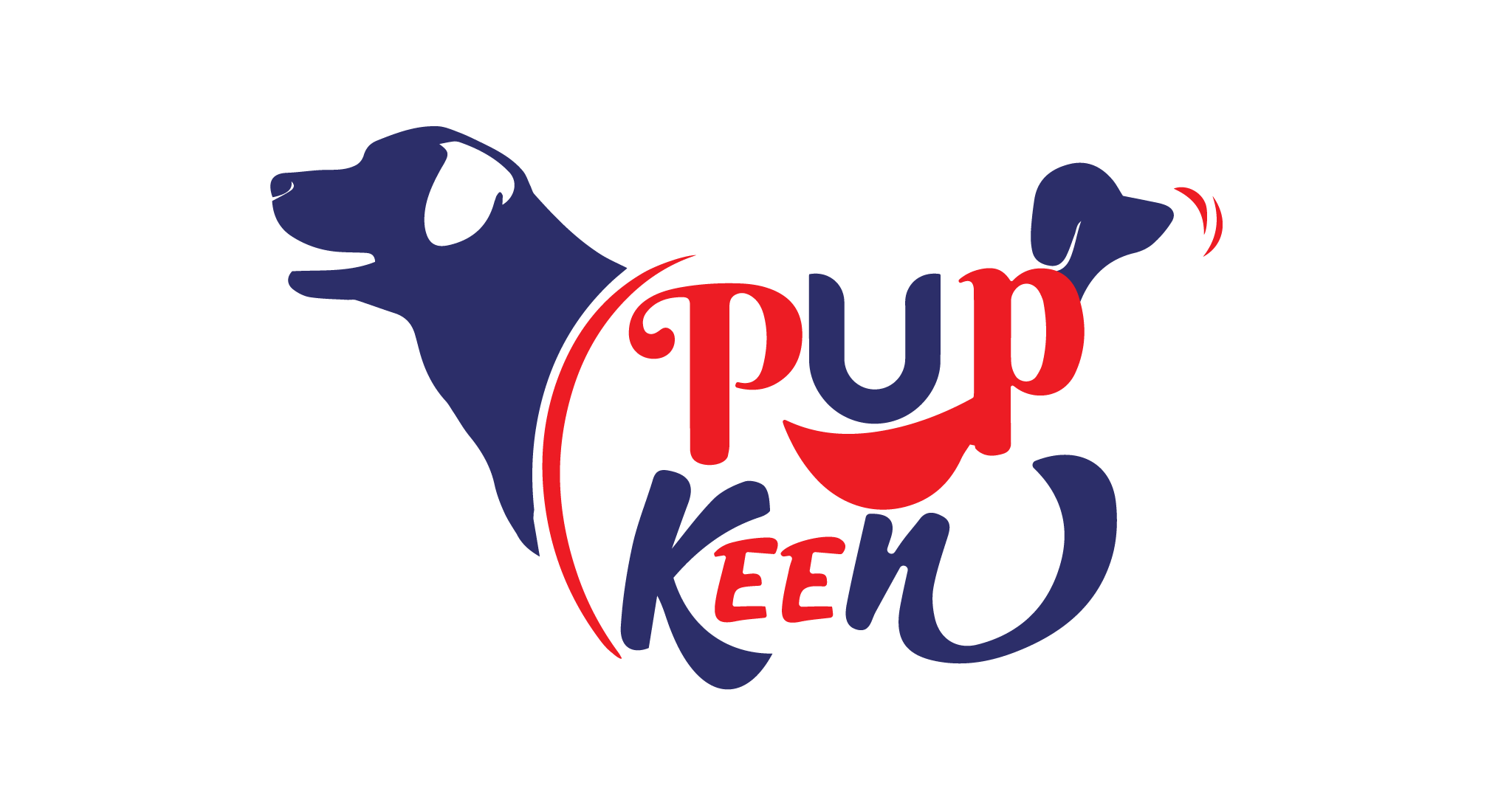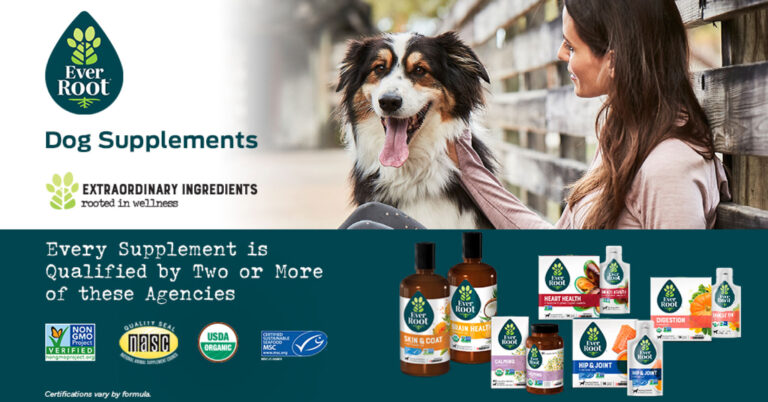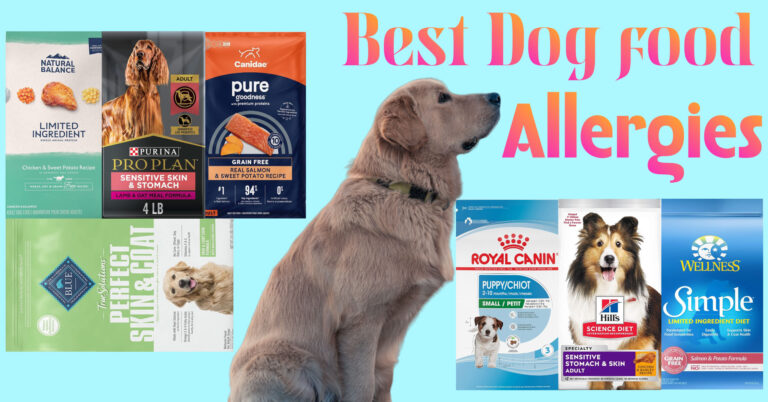Nutrition Tips for Dogs with Liver Disease: Foods to Include and Avoid
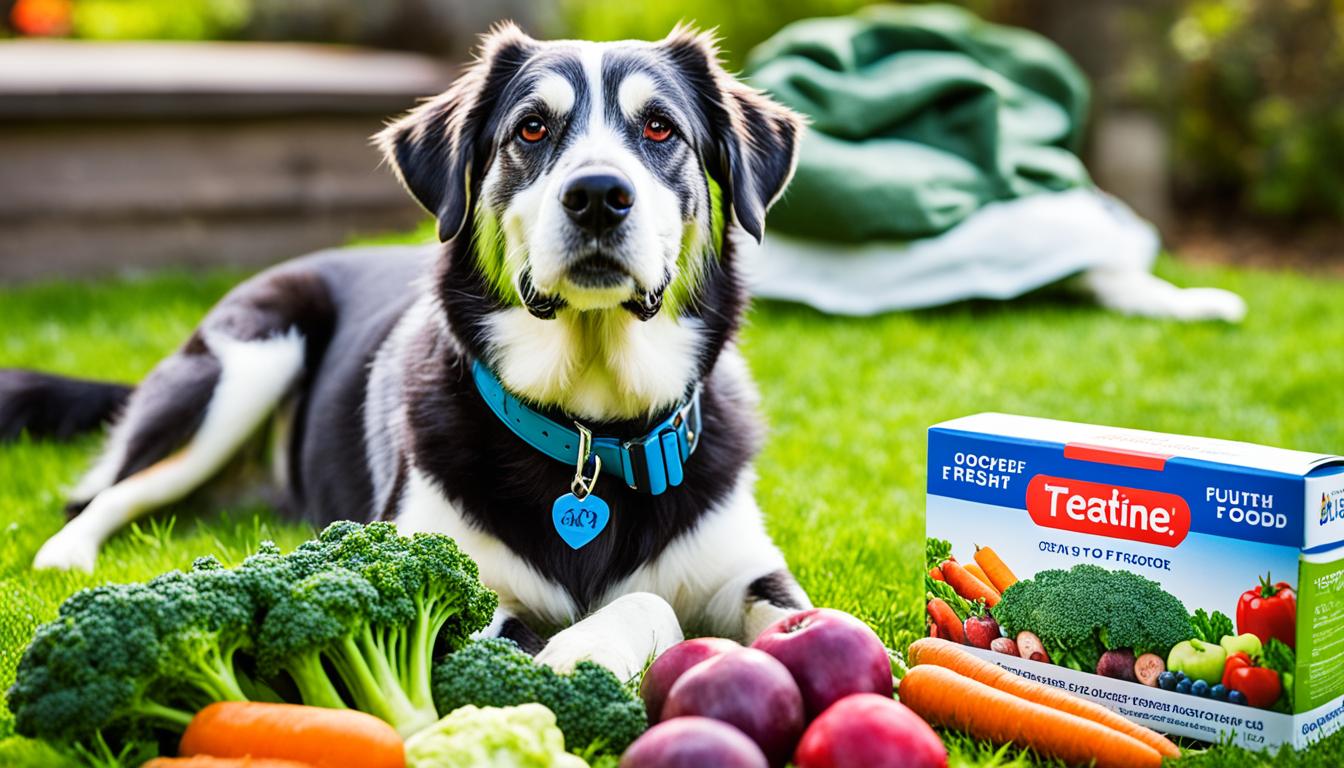
Did you know up to 10% of dogs may get liver disease? This fact shows how vital it is to know about canine hepatic disorders and the right diet for liver disease in dogs. As a pet owner, I’ve found that catching it early and feeding them right can make a big difference in their lives.
The liver is key to a dog’s health, filtering blood, detoxing chemicals, and making bile for fat digestion. If a dog gets liver disease, it can really hurt their health. That’s why I want to share some key nutrition tips to help dogs with liver issues stay healthy.
Key Takeaways
- Liver disease affects up to 10% of dogs
- Early detection is crucial for effective management
- Proper nutrition is essential for supporting liver function
- A specialized diet can improve quality of life for affected dogs
Understanding Canine Liver Disease
As a pet owner, I know how important pet liver care is. The liver is key to your dog’s health. Spotting liver disease early can really help. Let’s explore canine liver health and how to notice issues.
Common Types of Liver Disease in Dogs
Dogs can face many liver issues. Chronic hepatitis is the top liver disease in dogs. Acute liver failure is another big concern, causing sudden liver function loss. Some dogs get hepatic encephalopathy, leading to brain problems due to poor liver function. Portosystemic shunts, either from birth or later, are also possible.
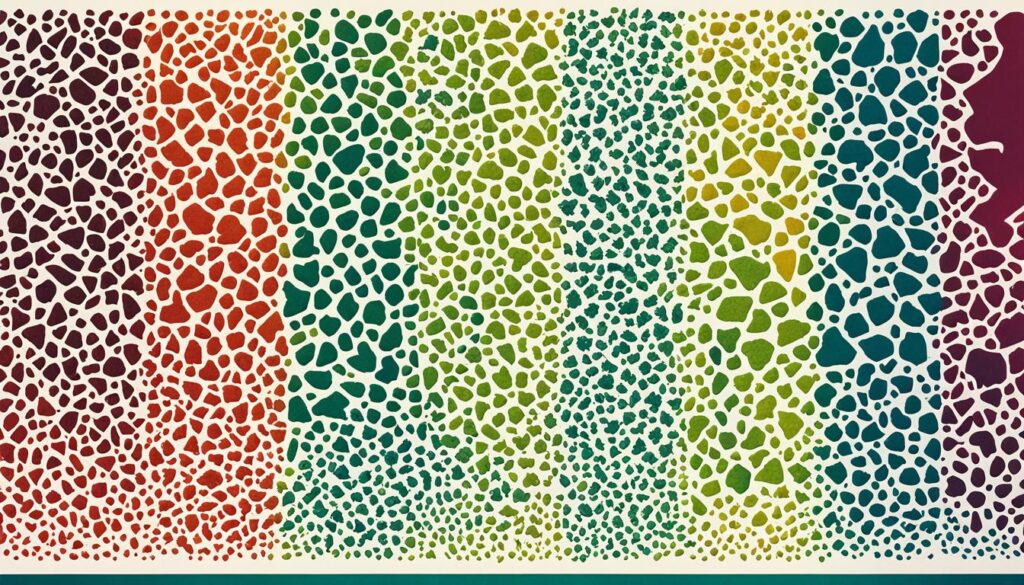
Signs and Symptoms of Liver Problems
Knowing the signs of liver disease in dogs is key to early detection. Look out for these:
- Increased thirst and urination
- Jaundice (yellowing of eyes, gums, and skin)
- Vomiting and diarrhea
- Weight loss and decreased appetite
- Lethargy and confusion
- Swollen abdomen (ascites)
The Importance of Early Detection
Finding liver disease early can help your dog. Regular vet visits and blood tests can catch issues early. If you see anything weird on your dog, see your vet pronto. Vigilance and speed are the keys to good pet liver care.
| Diagnostic Method | What It Detects |
|---|---|
| Blood Tests | Liver enzyme levels, protein levels |
| X-rays | Liver size and shape |
| Ultrasound | Liver structure, blood flow |
| Biopsy | Cellular changes, specific diseases |
The Vital Role of the Liver in Canine Health
The liver is the hub of a dog’s health. It does about 1,500 jobs. It’s the body’s control center, what goes in and out.
The liver in dogs is cool. It filters blood, gets rid of bad stuff, makes bile for fat digestion and proteins for blood clotting and can even regrow its own cells.
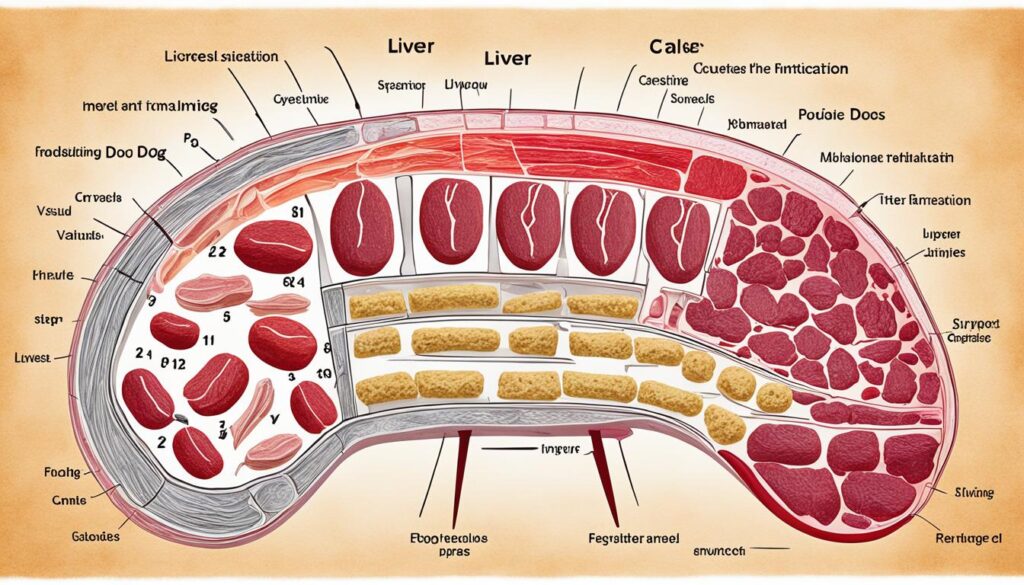
Liver disease is a big deal for dogs. It’s one of the top five causes of death in dogs of all ages. That’s why keeping the liver healthy is crucial for our dogs.
| Liver Function | Importance |
|---|---|
| Detoxification | Removes harmful substances from the body |
| Protein Production | Creates essential proteins for blood clotting |
| Bile Production | Aids in fat digestion |
| Nutrient Storage | Stores vitamins and minerals |
Looking after our dogs’ liver health is key to their happiness. A healthy liver means a happy, lively dog!
Factors Contributing to Liver Disease in Dogs
Preventing liver problems in dogs means knowing what causes them. Diet, environment, genetics, and medications are key factors. Each one affects a dog’s liver health.
Dietary Influences on Liver Health
A bad diet can put stress on a dog’s liver. Foods high in fat and artificial additives can hurt liver function. Feeding dogs unprocessed foods with lean proteins and complex carbs helps keep their liver healthy.
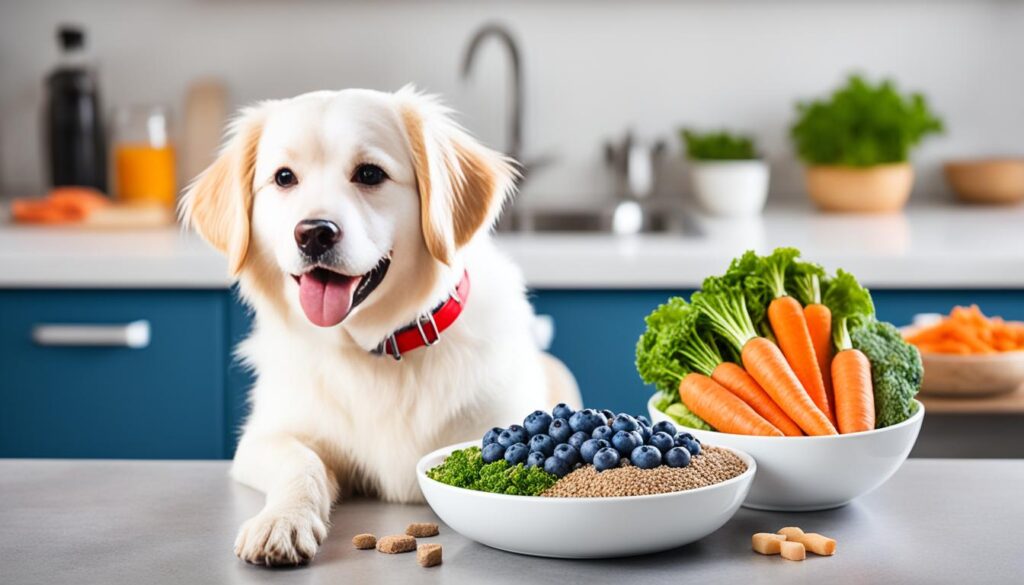
Environmental and Genetic Factors
Some breeds like Bedlington Terriers and Doberman Pinschers are more prone to liver issues. Toxins in the environment are also a risk. Keep dogs away from bad plants or bugs. Regular vet visits can catch genetic risks early.
Medications and Toxins
Some meds like painkillers can be hard on the liver. Always check any supplements or meds given to dogs. Mold on corn or certain plants can also cause liver problems. Always talk to a vet before giving new meds to make sure they’re safe for the liver.
By tackling these issues, we can lower the risk of liver problems in dogs. Early detection through regular vet visits is crucial in preventing liver issues.
Liver Disease Dog Nutrition: Essential Dietary Guidelines
A liver-friendly dog food is key for dogs with liver disease. The right food can greatly improve your pet’s health and life quality. Let’s look at some important dietary tips for your furry friend.
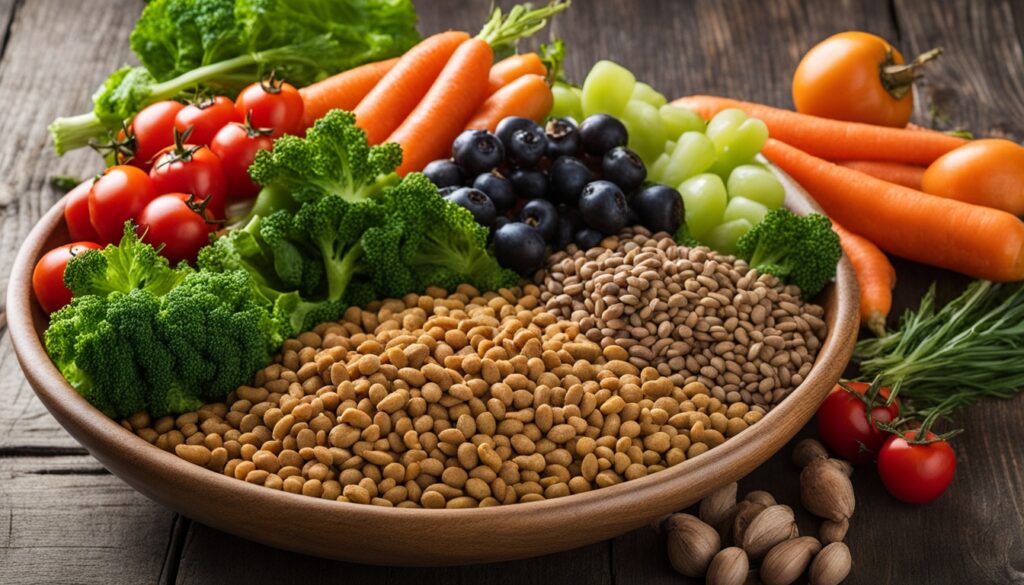
Fresh, pure food is vital for a liver-friendly diet. I suggest choosing low-fat foods with 10-15% fat on a dry matter basis. This helps ease the load on your dog’s liver.
For dogs with liver shunts, keep phosphorus levels low, between 0.2% and 1% dry matter. If your dog has copper toxicity, limit copper to 2.6mg per kg of food.
Protein is crucial but must be balanced. Go for moderate to high quality protein sources. Add omega fats and antioxidants for liver health. Feeding smaller, more frequent meals is easier on the liver than big ones.
| Recommended | Avoid |
|---|---|
| Lean meats (chicken, turkey) | High-fat foods |
| Cooked eggs | Processed foods |
| Brown rice, millet | Raw diets |
| Vegetables (carrots, broccoli) | Inflammatory foods |
Raw food is harder on the liver than cooked. Follow these tips and talk to your vet to make a diet that helps your dog’s liver.
Protein Considerations for Dogs with Liver Disease
Protein is key for dogs with liver disease. It supports liver health and overall health. Finding the balance is key for our fur babies.
Optimal Protein Sources
For dogs with liver problems, lean high quality proteins are best. Chicken, turkey and fish are good options. Easy to digest and gives the right amino acids without overloading the liver.
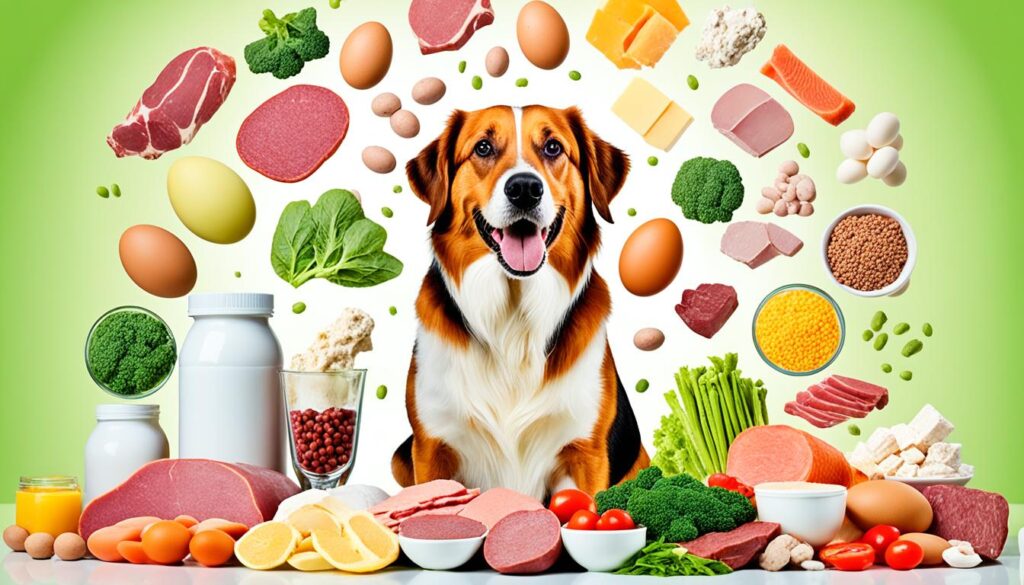
Balancing Protein Intake
Now we know moderate protein helps with liver regeneration. It prevents muscle loss and supports liver function. But we need to find the right amount for each dog. This means regular checks and adjustments.
Risks of Protein Restriction
Not all dogs need less protein. Too little can cause problems and slow down liver healing. I always recommend talking to your vet. Together you can create a diet plan for your dog.
| Protein Source | Benefits | Considerations |
|---|---|---|
| Chicken | Lean, easily digestible | Remove skin for lower fat content |
| Turkey | Low in purines, high in essential amino acids | Best served ground or finely chopped |
| Fish | Rich in omega-3 fatty acids | Choose low-mercury options like salmon or cod |
| Egg whites | High-quality protein, low in phosphorus | Cooked to ensure digestibility |
The Importance of Low-Fat Diets in Liver Disease Management
A low fat diet is key to managing liver disease in dogs. You need to cut down on fat in their food. This makes the liver’s job easier and reduces belly bloating.
For a diet for dogs with liver issues, keep fat levels at 10-15% on dry matter or 2-7% on wet food. Lowering fat prevents pancreatitis which can make liver problems worse. Cooking food makes it easier to keep the fat levels right.
Even with less fat, dogs need some good fats like omega-3s. These fats are good for the liver and overall health. El-Mowafy AM et al.
| Diet Type | Fat Content (Dry Matter) | Fat Content (Wet Basis) |
|---|---|---|
| Regular Dog Food | 20-30% | 10-15% |
| Liver-Friendly Dog Food | 10-15% | 2-7% |
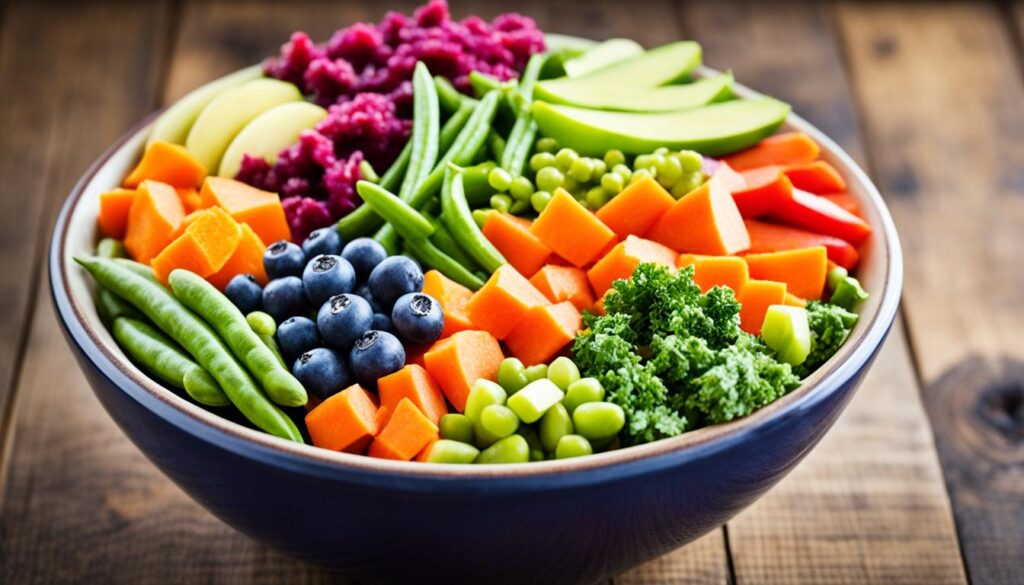
Switching from raw to cooked food often helps dogs with liver issues. Cooking lets you control nutrients like choline and copper, which are important for liver health. Always talk to a vet to make a diet plan that fits your dog’s needs.
Beneficial Nutrients for Liver Health in Dogs
Certain nutrients are key for a dog’s liver health. They are important for dogs with liver problems. These nutrients can be part of a full plan for liver supplements for dogs.
Antioxidants and Their Role
Antioxidants fight liver damage. Blueberries are full of these compounds. They help slow scar tissue growth in rat livers. This could also help prevent scar tissue in dogs.
Essential Vitamins and Minerals
Kale and spinach are packed with A, C, K and B complex. Iron, magnesium and potassium. These are the nutrients the liver uses for detox.
Omega-3 Fatty Acids
Fatty fish like mackerel and sardines are good for omega 3s. These fats reduce inflammation which is important for liver health. They do this by stopping the enzymes that cause inflammation.
| Nutrient | Source | Benefit for Liver Health |
|---|---|---|
| Antioxidants | Blueberries | May slow scar tissue formation |
| Vitamins A, C, K, B-complex | Kale, Spinach | Support liver detoxification |
| Omega-3 Fatty Acids | Mackerel, Sardines | Reduce liver inflammation |
| Choline | Eggs | Aids fat metabolism in liver |
Foods to Include in a Liver-Friendly Canine Diet
A diet for dogs with liver issues is key. It has to be balanced and easy to digest. This will support their liver.
Lean Protein Sources
For my dogs I choose lean proteins. Chicken, turkey and fish. Eggs are good too as they are low fat and good for dogs with liver issues.
Liver-Supporting Fruits and Vegetables
Vegetables are vital in a diet for liver health. Carrots, broccoli, and Chinese eggplant help liver function. Apples and blueberries add antioxidants.
Beneficial Whole Grains
Small amounts of whole grains are added to my dog’s diet. Brown rice and millet are good options. Potatoes are a gentle carb source, helping balance the diet.
It’s important to talk to a vet for the best diet plan. They can adjust it based on your dog’s liver disease and other health issues.
Foods to Avoid for Dogs with Liver Disease
When managing a diet for dogs with liver disease, it’s key to know which foods can harm their liver. High-fat foods should be avoided as they stress the liver. Dogs with liver disease do best on diets with 20-25% fat content.
Processed foods are a big no-no for dogs with liver disease. They often have additives and preservatives that are hard for the liver to process. Foods high in copper should also be avoided as they can make liver damage worse.
Table scraps and human food not made for dogs should be avoided. These can throw off the balance of a dog’s diet. Dairy products and foods with simple sugars are also best limited.
- Raw diets
- High-fat foods
- Processed dog foods
- Foods high in copper
- Table scraps
- Dairy products
- Foods high in simple sugars
Raw diets aren’t recommended for dogs with liver disease. They can be risky because of bacterial contamination and stress the liver. In my experience, cooked, easy-to-digest proteins work better in a diet for dogs with liver disease.
Supplements and Herbal Remedies for Canine Liver Support
Liver supplements for dogs can really help with their liver health. They have important ingredients that support liver function and overall health.
Milk Thistle and Its Benefits
Milk thistle is a top choice for supporting the liver. It has silymarin, which helps make new liver cells and clean toxins. Pet Wellbeing’s Milk Thistle for Healthy Liver Function in Dogs is well-liked, with a 4.7-star rating from 820 reviews.
Other Supportive Supplements
Other supplements good for dogs’ livers include SAM-e, L-carnitine, and omega-3 fatty acids. These help with liver cell health, fat metabolism, and lowering inflammation.
| Supplement | Benefits | Recommended for |
|---|---|---|
| Denamarin | Antioxidants SAM-e and silybin | Dogs with liver disease |
| Vetri-SAMe 90 | Combines SAM-e and glutathione | Senior dogs |
| Pet Wellbeing’s Milk Thistle | 333 mg/ml of Certified Organic Milk Thistle seed | Dogs on liver-taxing medications |
Consulting with a Veterinarian Before Supplementation
Always talk to a vet before starting supplements. Not every dog needs liver support, and the right amount depends on their size and health. Choosing and giving supplements correctly is important for your dog’s liver health.
Feeding Strategies for Dogs with Liver Disease
Feeding strategies are key for dogs with liver disease. Small frequent meals helps keep blood sugar stable and ease the liver’s load. This is crucial for managing their diet.
When I’m planning meals for dogs with liver disease I focus on making food appealing. Dogs may not want to eat when they have liver disease. So, I use tasty food. I also make sure they always have fresh water and eat at the same time every day.
For some dogs eating from elevated stations can help them feel more comfortable. I monitor their weight and adjust their food as needed. Always with a vet’s advice.
| Feeding Strategy | Benefit |
|---|---|
| Small, frequent meals | Stable blood sugar, reduced liver workload |
| Highly palatable food | Encourages eating despite decreased appetite |
| Consistent feeding times | Helps maintain routine and digestive balance |
| Elevated feeding stations | May reduce discomfort for some dogs |
When liver disease gets bad, managing symptoms like hepatic encephalopathy is key. I’ve seen soy protein helps more than meat based proteins. Changing their diet is key as signs of liver problems show up when liver function is only 70% of normal.
Conclusion
I’ve looked into how to help dogs with liver disease and keep their liver healthy. It’s clear taking care of a dog’s liver requires a plan. A liver friendly diet is key to making them feel better.
Copper is good for dogs but too much is bad. Studies show supplements can help dog’s liver health. That’s how important it is to get it right.
Every dog is different. Regular vet visits, blood tests and changing their diet is key to managing liver disease. With the right care and food many dogs can live happy lives. As pet owners we want to give our dogs the best we can. Learning about liver disease and nutrition is part of that.
